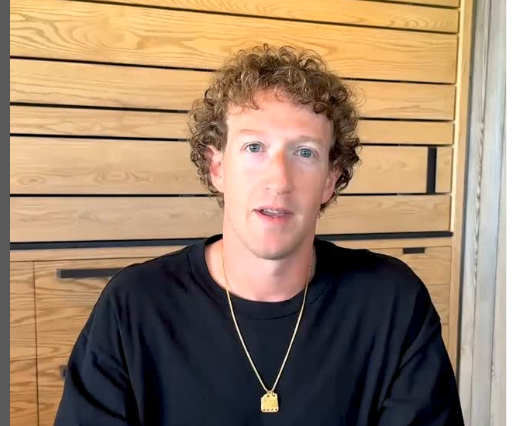The fact that Mark Zuckerberg’s net worth is so nearly $270 billion is evidence of the fortitude and foresight that have characterized his professional life. His wealth, which is based on Meta’s stock, has significantly increased over the last two years due to the company’s growth into immersive and artificial intelligence technologies as well as rising valuations. Given the skepticism Meta encountered during its shift toward the metaverse—a move that necessitated both technical innovation and extraordinary perseverance in the face of market skepticism—this ascent is especially remarkable.

Since Facebook’s inception, Zuckerberg has maintained strict voting control, allowing him to pursue tactics that others might deem too dangerous. Even when quarterly results stalled, he was still able to advocate for significant investments in cutting-edge technologies thanks to that structure. Though contentious, the strategy has been very effective in preserving Meta’s market dominance, evoking the way other tech giants, like Steve Jobs or Elon Musk, overcame opposition from the market to completely transform entire industries.
Mark Zuckerberg – Key Personal and Professional Facts
| Detail | Information |
|---|---|
| Full Name | Mark Elliot Zuckerberg |
| Date of Birth | May 14, 1984 |
| Age | 41 |
| Birthplace | White Plains, New York, U.S. |
| Residence | Palo Alto, California |
| Citizenship | United States |
| Education | Harvard University (dropped out) |
| Occupations | Co-founder, Chairman & CEO of Meta Platforms |
| Marital Status | Married to Priscilla Chan (since 2012) |
| Children | 3 |
| Net Worth (May 2025) | $269.6 Billion |
| Main Source of Wealth | Meta (formerly Facebook) |
| Ownership in Meta | ~13% |
| Philanthropy | Co-CEO of Chan Zuckerberg Initiative; pledged to donate 99% of Meta stake |
| Notable Recognition | Time Person of the Year (2010); multiple Time 100 listings |
| Reference | https://www.forbes.com/profile/mark-zuckerberg |
Zuckerberg’s legacy has also been significantly shaped by philanthropy. His and Priscilla Chan’s promise to donate 99 percent of their Meta stake is incredibly audacious, especially in light of their long-term goals of improving education, resolving criminal justice issues, and curing illnesses. Their charitable contributions through the Chan Zuckerberg Initiative combine focused action with strategic vision, frequently utilizing technology to expedite solutions. This model is especially novel since it reflects the preferences of ultra-wealthy philanthropists who view their fortune as a means of bringing about systemic change as opposed to temporary respite.
In his private life, Zuckerberg exudes influence and accessibility. His marriage to Chan started while they were both attending Harvard, and their life together—parenting three daughters and posting pictures of their family online—provides a more gentle contrast to his business persona. The couple’s decisions, such as getting a Puli dog with millions of fans and commissioning a huge artwork of Chan, subtly support their distinct public persona: personable but unquestionably strong.
Over the years, Zuckerberg has been consistently ranked as one of the most influential people in technology and beyond by publications like Time and Forbes. His 2010 Time Person of the Year award, given when Facebook reached half a billion users, is still one of his most well-known achievements. His role in leading Meta toward the forefront of artificial intelligence development—a field that is anticipated to profoundly influence economic and cultural landscapes in the years to come—is reflected in his recent inclusion in the Time 100 AI list.
His public persona has changed in a very noticeable way. Previously characterized by a basic gray T-shirt and jeans, Zuckerberg has lately adopted a more daring, fashion-forward look. Some observers see this as a sign of Meta’s cultural repositioning, while others see it as a personal rebrand. Whether deliberate or not, the change has kept him in the public eye in a subtle yet remarkably successful way.
The volatility of his net worth has consistently been driven by market forces. Zuckerberg’s fortune significantly increased in 2023 as a result of Meta’s recovery, which was driven by higher advertising revenues and early AI integrations. He became the second richest person in the United States by the end of 2024, surpassing Jeff Bezos. This change demonstrated how quickly wealth can increase in technology sectors when product innovation coincides with market timing.
Beyond the financial headlines, Zuckerberg’s impact shapes broad discussions about speech, privacy, and the place of big tech companies in contemporary society. Because of his influence over Meta, he has a say in issues that affect billions of people every day, such as the spread of information and the development of online communities. Given the speed at which technology is developing today, that influence is both a strength and a liability that will continue to shape his public legacy.
